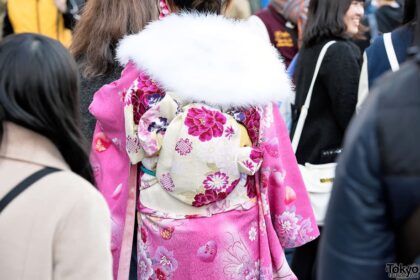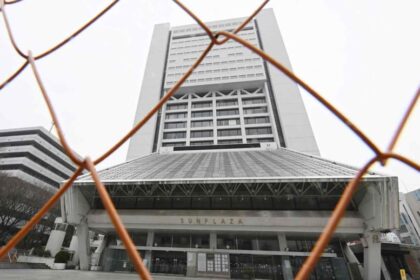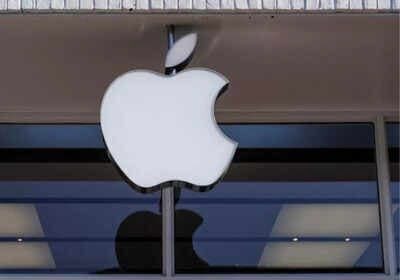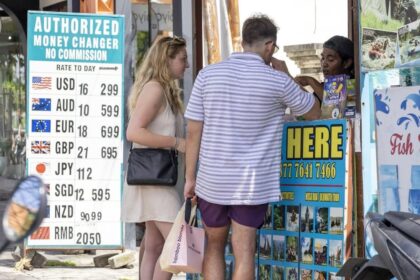Anker Power Bank Recall: The Facts and Immediate Response in Taiwan
In June 2025, Anker Innovations Co., a leading global manufacturer of mobile charging devices, announced a sweeping recall of over 700,000 power banks worldwide due to fire and overheating risks. The recall, which includes seven specific models, has had a direct impact on the Taiwanese market, prompting swift action from local distributors and raising questions about product safety, supply chain oversight, and consumer protection.
- Anker Power Bank Recall: The Facts and Immediate Response in Taiwan
- What Caused the Recall? Understanding the Technical Risks
- How Did Distributors and Retailers in Taiwan Respond?
- What Should Consumers Do? Recall Options and Compensation
- Gray Market Challenges: The Limits of Official Recalls
- Global Context: Anker and Romoss Recalls Highlight Industry-Wide Risks
- Regulatory Oversight and Consumer Protection in Taiwan
- Industry Impact and Anker’s Global Reputation
- Lessons Learned: Supply Chain Risks and the Future of Battery Safety
- In Summary
The recall was triggered after Anker received multiple reports of its power banks overheating, catching fire, or even exploding. According to the United States Consumer Product Safety Commission (CPSC), there were at least 19 such incidents globally, resulting in two minor injuries and property damage estimated at US$60,000. The affected models include the A1642, A1647, A1652, A1680, A1681, A1689, and A1257 series. In a separate but related action, the CPSC also requested the recall of 1.158 million units from the A1263 series in the United States.
In Taiwan, the recall centers on the A1257 model, with fewer than 5,500 units affected. Weblink International Inc., the official distributor for this model in Taiwan, responded by contacting all authorized retailers to remove the product from shelves. Anker Taiwan also reported the issue to the Bureau of Standards, Metrology and Inspection, and initiated a proactive recall to ensure consumer safety.
What Caused the Recall? Understanding the Technical Risks
The root cause of the recall lies in the battery cells used in the affected power banks. Anker’s internal investigation revealed that one of its battery suppliers had made unauthorized changes to the raw materials used in the battery cells. Specifically, these changes compromised the insulation of the separator—a critical component that prevents the battery’s internal electrodes from coming into direct contact. Over time and with repeated charging cycles, this insulation could fail, leading to overheating, combustion, or even explosion.
Battery safety is a complex issue in the electronics industry. Lithium-ion batteries, which are commonly used in power banks, are highly efficient but can be volatile if not manufactured to strict standards. Even minor deviations in materials or assembly can introduce significant risks. In this case, Anker’s supplier substituted materials without approval, bypassing the company’s quality assurance protocols. This highlights the challenges manufacturers face in maintaining oversight across global supply chains.
According to Anker’s official statement, the company has since terminated its relationship with the supplier in question and switched to alternative, approved vendors. The company also pledged to strengthen its quality control and supplier monitoring processes to prevent similar incidents in the future.
How Did Distributors and Retailers in Taiwan Respond?
Weblink International Inc., the main distributor of the A1257 model in Taiwan, acted quickly after the global recall was announced. The company issued a statement confirming that it had contacted all of its authorized sales channels and that most of the affected power banks had been removed from shelves. However, Weblink noted that its recall efforts do not extend to unlicensed or unauthorized retailers—often referred to as the “gray market”—which may continue to sell the product outside official channels.
Another major distributor, Chicony Electronics Co., clarified that it had not imported any of the seven recalled models, further limiting the scope of the recall in Taiwan. Anker’s e-commerce platform for the local market, operated by Liang Shing EcLife Corp., also removed the A1257 model from its online store and suspended further sales.
In a public notice, Anker Taiwan emphasized its commitment to consumer safety and transparency. The company reported the issue to the relevant authorities and launched a comprehensive internal review to confirm that no other recalled models had entered the Taiwanese market. Anker Taiwan also ended its partnership with the problematic battery supplier and prepared a detailed recall response plan for affected customers.
What Should Consumers Do? Recall Options and Compensation
For consumers who purchased the A1257 Anker Power Bank (10K, 22.5W) in Taiwan, Anker has provided several options:
- Free Upgrade: Exchange the affected power bank for a new A1259 Anker Power Bank (10K, 30W) at no additional cost.
- Voucher: Receive a NT$1,100 (approximately US$37) voucher for use on Anker’s official website.
- Full Refund: Obtain a full refund of NT$890, which corresponds to the highest listed online price of the affected product in the past 180 days.
Consumers are urged to stop using the affected model immediately and to follow the instructions provided on Anker Taiwan’s official website for initiating a recall claim. The process involves verifying the product’s serial number and purchase details, after which Anker will arrange for collection and compensation.
For those unsure whether their power bank is affected, Anker Taiwan’s customer service team is available to assist with verification and to answer any questions about the recall process.
Gray Market Challenges: The Limits of Official Recalls
While the official recall has been comprehensive among authorized retailers, the existence of gray market channels poses a significant challenge. Gray market goods are products imported and sold through unofficial or unauthorized channels, often bypassing the manufacturer’s quality control and after-sales support. In the case of the Anker recall, Weblink International Inc. acknowledged that it cannot enforce the recall among these unauthorized sellers.
This situation underscores a broader issue in the consumer electronics market: the risks associated with purchasing products from unlicensed sources. Consumers who buy from gray market retailers may not be eligible for official recall compensation or support, and may face greater safety risks if the products are counterfeit or have not passed local safety inspections.
Authorities and consumer advocacy groups in Taiwan have urged the public to purchase electronics only from authorized dealers and to register their products when possible. This ensures access to official support in the event of recalls or safety issues.
Global Context: Anker and Romoss Recalls Highlight Industry-Wide Risks
The Anker recall is not an isolated incident. In the same month, another major Chinese electronics manufacturer, Romoss, recalled nearly half a million power banks across three models due to similar battery cell issues. The Romoss recall followed reports of explosions, including an incident on a flight between China and Hong Kong.
These events have drawn attention to the broader risks associated with lithium-ion battery technology and the importance of rigorous quality control in the electronics industry. Both Anker and Romoss attributed their recalls to problems with battery cell suppliers, highlighting the vulnerability of even well-established brands to supply chain disruptions and quality lapses.
According to industry analysts, the global market for portable power banks is highly competitive, with manufacturers under constant pressure to innovate and reduce costs. This can sometimes lead to shortcuts in sourcing or manufacturing, increasing the risk of safety issues. The recent recalls serve as a reminder of the need for robust oversight and transparency throughout the supply chain.
Regulatory Oversight and Consumer Protection in Taiwan
Taiwan’s Bureau of Standards, Metrology and Inspection (BSMI) plays a key role in monitoring the safety of imported electronics. Upon learning of the Anker recall, Anker Taiwan promptly reported the issue to the BSMI and submitted the affected model for further checks and examinations. The agency is responsible for ensuring that recalled products are removed from the market and that consumers are adequately informed and compensated.
Regulatory authorities in Taiwan have also used the incident to remind consumers of the importance of product registration and the risks of purchasing from unauthorized sellers. The BSMI has encouraged consumers to report any safety incidents involving electronics and to participate in recall programs when notified.
Consumer protection laws in Taiwan require manufacturers and distributors to take prompt action in the event of product safety issues, including issuing public notices, providing compensation, and cooperating with regulatory investigations. Anker’s response in Taiwan has been cited as a positive example of proactive recall management, though the challenges posed by gray market sales remain unresolved.
Industry Impact and Anker’s Global Reputation
Anker Innovations Co. is one of the world’s leading brands in mobile charging technology, with a presence in over 140 countries and more than 200 million products sold. The company’s reputation for quality and innovation has made it a popular choice among consumers worldwide. However, the recent recall has raised questions about the company’s supply chain management and quality assurance practices.
According to Anker’s 2024 annual report, over 96% of its revenue comes from overseas markets, with China accounting for only a small fraction of sales. The company’s global ambitions have made it particularly sensitive to safety and quality issues, as incidents in one market can quickly affect its reputation worldwide.
Despite the recall, Anker has taken steps to reassure consumers and stakeholders. The company has pledged to strengthen its supplier vetting processes, enhance quality control, and maintain transparency in its communications. Industry observers note that how Anker handles the aftermath of the recall will be critical to restoring consumer trust and maintaining its market position.
Lessons Learned: Supply Chain Risks and the Future of Battery Safety
The Anker power bank recall highlights several important lessons for manufacturers, regulators, and consumers alike:
- Supply Chain Oversight: Even established brands are vulnerable to risks introduced by suppliers. Rigorous vetting, regular audits, and clear communication channels are essential to maintaining product safety.
- Transparency and Communication: Prompt, transparent communication with consumers and regulators is critical in managing recalls and minimizing harm.
- Consumer Awareness: Consumers should be vigilant about purchasing electronics from authorized sources and should register their products when possible to ensure access to support in the event of recalls.
- Regulatory Vigilance: Regulatory agencies must remain proactive in monitoring product safety and enforcing recall actions, especially in markets with significant gray market activity.
As the demand for portable electronics continues to grow, the industry faces ongoing challenges in balancing innovation, cost, and safety. The Anker recall serves as a reminder that even small lapses in quality control can have far-reaching consequences, and that all stakeholders must work together to protect consumers.
In Summary
- Anker Innovations Co. recalled over 700,000 power banks globally due to fire and overheating risks, with fewer than 5,500 units affected in Taiwan (A1257 model).
- The recall was caused by unauthorized material changes in battery cells by a supplier, compromising insulation and increasing the risk of overheating or fire.
- Weblink International Inc., the official distributor in Taiwan, removed the affected model from authorized retailers, but gray market sales remain a challenge.
- Consumers in Taiwan can choose a free upgrade, voucher, or full refund for the recalled product and are urged to stop using it immediately.
- Regulatory authorities in Taiwan have been notified, and Anker Taiwan has pledged to strengthen quality control and supplier oversight.
- The recall highlights broader industry risks associated with lithium-ion batteries and the importance of supply chain transparency and consumer protection.












